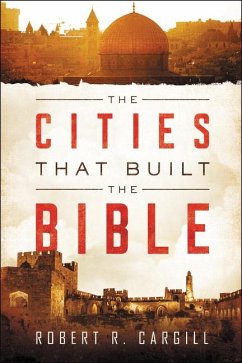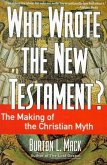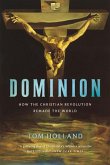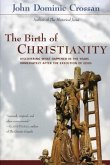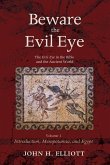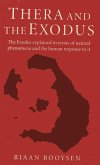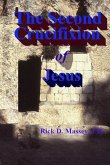For many, the names Bethlehem, Babylon, and Jerusalem are known as the setting for epic stories from the Bible, featuring holy mountains, soaring towers, and wooden crosses. What often gets missed is that these cities are far more than just the setting for the Bible and its characters—they were instrumental to the creation of the Bible as we know it today. Robert Cargill, assistant professor of classics and religious studies at the University of Iowa, is an archaeologist, Bible scholar, and host of numerous television documentaries, including the History channel series Bible Secrets Revealed. Taking us behind the scenes of the Bible, Cargill blends archaeology, biblical history, and his personal journey as he explores these cities and their role in the creation of the Bible. He reveals surprising facts, such as what the Bible says about the birth of Jesus and how Mary’s virgin birth caused problems for the early church. Cargill also reveals how the God of the Old Testament was influenced by other deities; that there were numerous nonbiblical books written about the patriarchs, Jesus, and the apostles in antiquity; and how far more books were left out of the Bible than were allowed in during the messy canonization process. The Cities That Built the Bible is a magnificent tour through fourteen cities: the Phoenician cities of Tyre, Sidon, and Byblos; Ugarit; Nineveh; Babylon; Megiddo; Athens; Alexandria; Jerusalem; Qumran; Bethlehem; Nazareth; and Rome. Along the way, Cargill includes photos of artifacts, dig sites, ruins, and relics, taking readers on a far-reaching journey from the Grotto of the Nativity to the battlegrounds of Megiddo, from the towering Acropolis of Athens to the caves near Qumran where the Dead Sea Scrolls were discovered. An exciting adventure through time, The Cities That Built the Bible is a fresh, fascinating exploration that sheds new light on the Bible. Excavating the History of the Bible’s Greatest Cities “An engaging journey into the Bible and archaeology from a new perspective: instead of starting with kings, prophets, or texts, Cargill starts with ancient cities combined with a lively personal account that puts flesh and bones on the tale.”—Richard Elliott Friedman, Th.D., author of The Bible with Sources Revealed “Cargill captures the excitement of different times and places as he narrates the history of the major events and influences that derive from each location. A compelling read.”—Eric M. Meyers, Ph.D., Bernice and Morton Lerner Emeritus Professor in Judaic Studies at Duke University “Both a delight to read and reliable in its scholarship. Anyone who wants to know how recent archaeological discoveries have revolutionized our understanding of the Bible should read this book.”—William Schniedewind, Ph.D., Kershaw Chair of Ancient Eastern Mediterranean Studies at UCLA and author of How the Bible Became a Book “Cargill is a lucid and expert tour guide, explaining how and why the Bible is an extraordinary product of its material and urban contexts. The people, places, and peculiarities of ancient West Asia come alive in this exhilarating tour of the biblical past.”—Francesca Stavrakopoulou, D.Phil., professor of Hebrew Bible and ancient religion at the University of Exeter “In an appealing narrative full of interesting discussions and asides, Cargill takes the reader on a journey over the lands and through the pages of the Bible. A must-read.”—Eric H. Cline, Ph.D., professor of classics and anthropology at George Washington University “Cargill possesses the historical knowledge, command of biblical languages, and archaeological expertise necessary to successfully communicate the tale of the Bible’s beginnings with a passion that highlights his love for the biblical world.”—Oded Lipschits, Ph.D., professor of Jewish history and director of the Sonia and Marco Nadler Institute of Archaeology at Tel Aviv University “Robert Cargill is among the world’s most capable and impressive biblical scholars and archaeologists. The Cities That Built the Bible is without peer.”—Christopher Rollston, Ph.D., associate professor of Northwest Semitic languages and literatures at George Washington University
Hinweis: Dieser Artikel kann nur an eine deutsche Lieferadresse ausgeliefert werden.
Hinweis: Dieser Artikel kann nur an eine deutsche Lieferadresse ausgeliefert werden.

